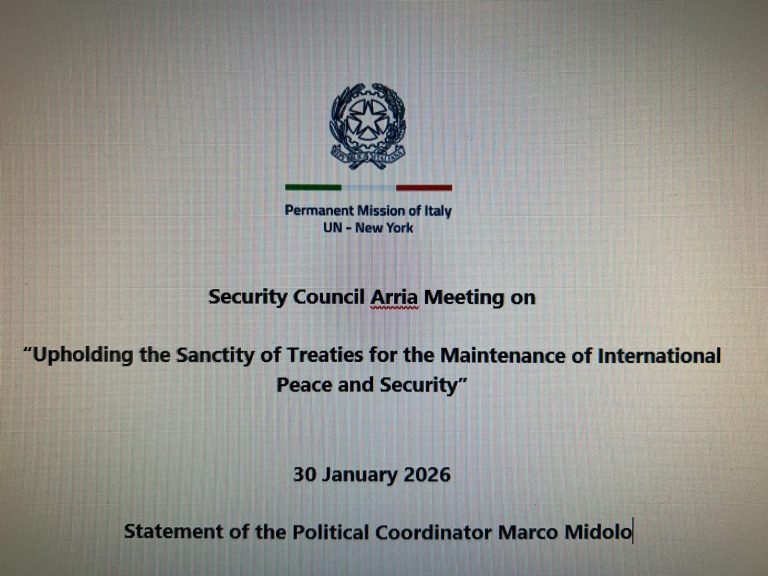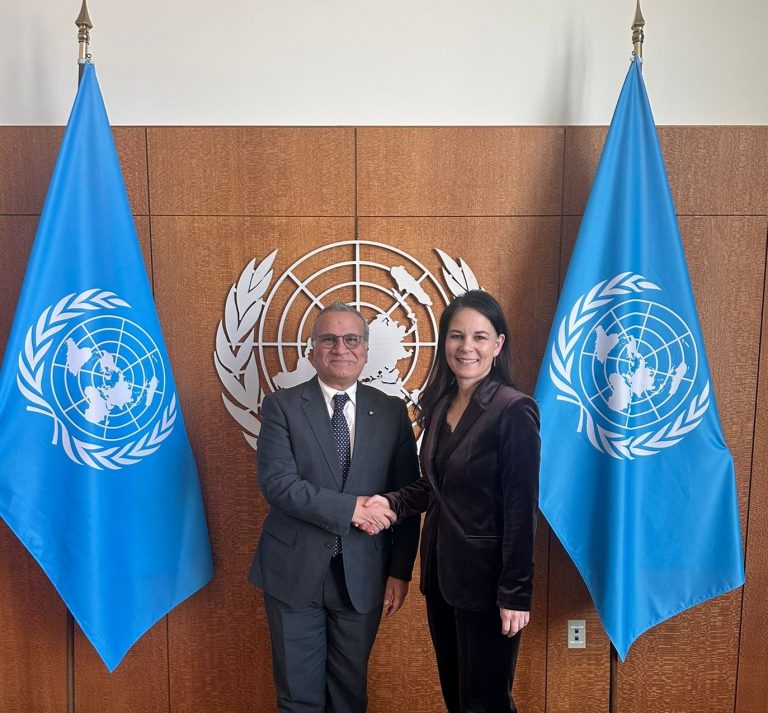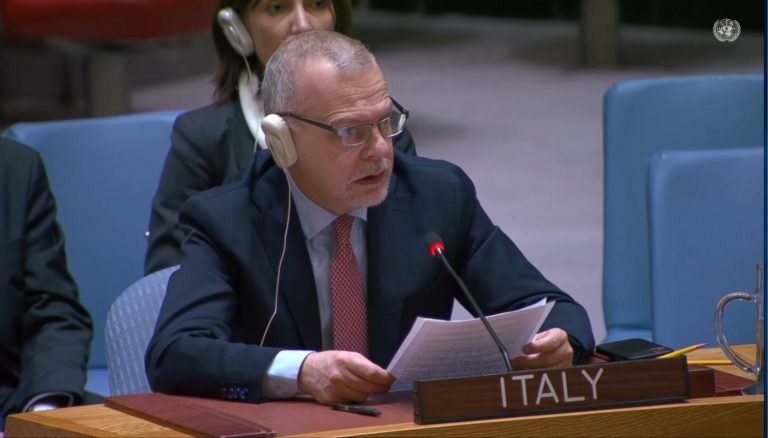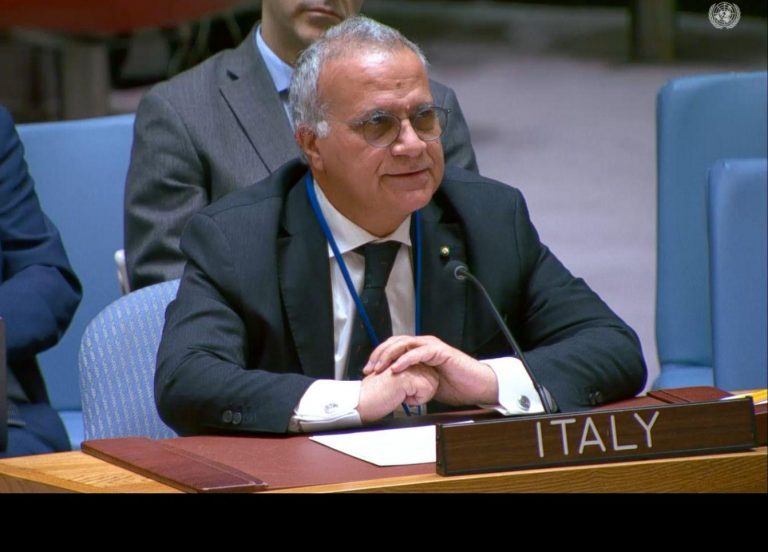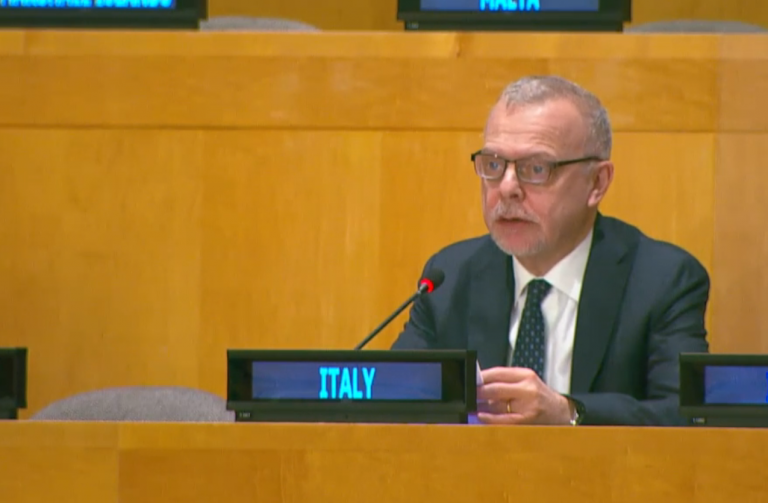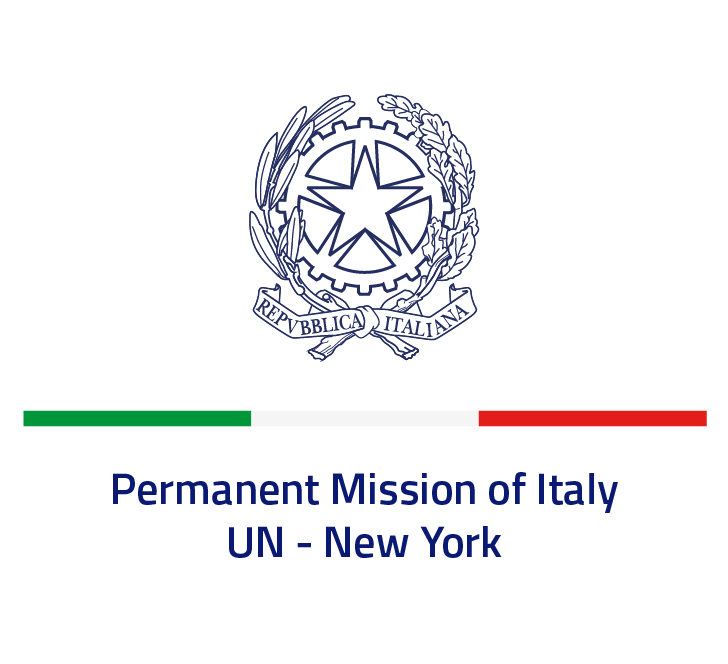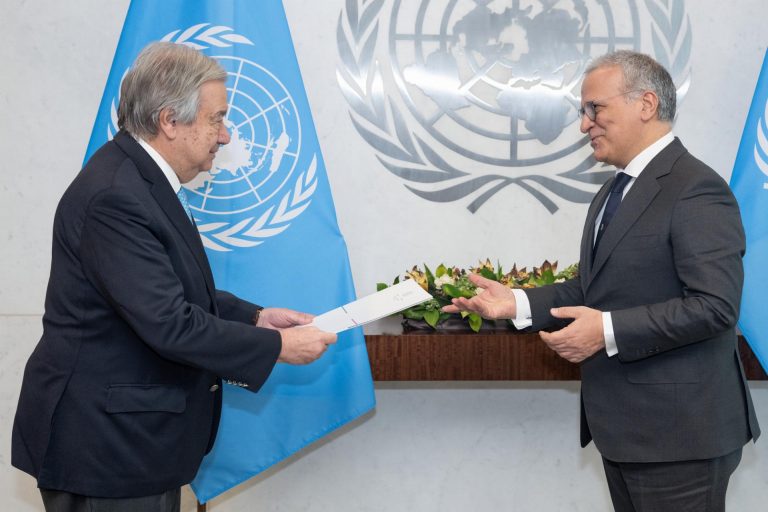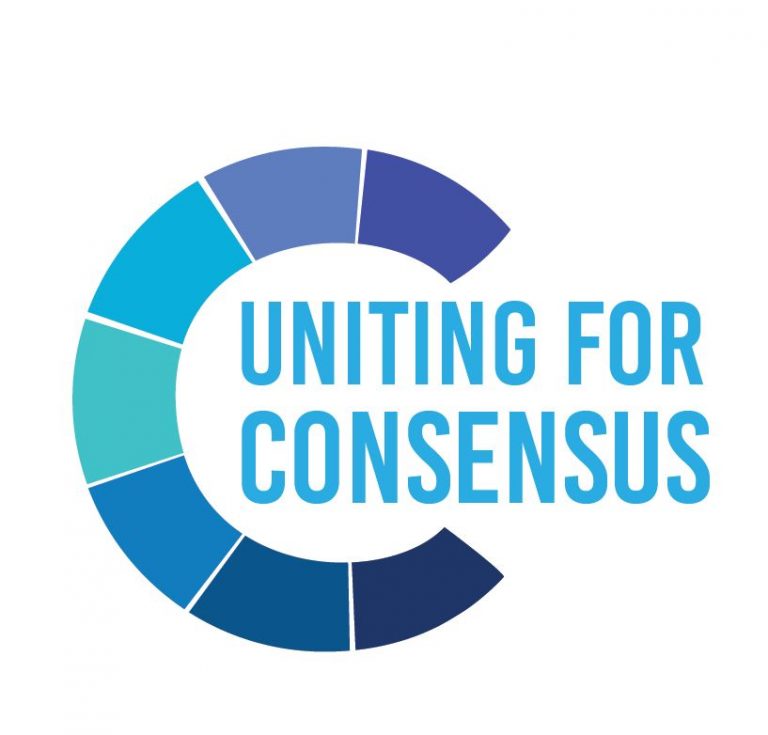Statement delivered by Ambassador Sebastiano Cardi, Permanent Representative of Italy to the United Nations, at the Security Council Open Debate on the “Protection of Civilians in Armed Conflict including Medical Care in Armed Conflict” —
Señor Ministro,
I thank the Uruguayan Presidency for this Open Debate which marks the first anniversary since the adoption of UNSC Resolution 2286 on protection of medical and humanitarian personnel and facilities.
I would like to thank the briefers too, first of all the Secretary-General for his report on the protection of civilians, including on the implementation of resolution 2286, as well as the ICRC Vice-President Beerli and the Deputy Executive-Director of Human Rights Watch, Ugarte, for their insightful thoughts and presentations.
Italy aligns itself with the statements to be delivered by the EU and by Switzerland who will speak on behalf of the Group of Friends on the Protection of Civilians.
Mr. President,
Last year’s adoption of Resolution 2286 by consensus and with a very large number of co-sponsors was a landmark achievement by the Security Council, and sent a powerful message to the international community by calling on all parties to conflicts to give special protection to medical and humanitarian personnel and facilities, to ensure accountability for violations and to ensure concrete implementation of its provisions, including the need to share best practices.
Italy supports the provisions of resolution 2286 as a tool to implement and increase respect for cardinal principles of International Humanitarian Law and of the 1949 Geneva Conventions. We must recall the obligation enshrined in Common Article 1 to the four Geneva Conventions and to the first 1977 Protocol, not only to respect but also to ensure respect for the Conventions in all circumstances. In this regard we are committed to the full implementation of resolution 2286 and of its provisions on the protection of civilians and healthcare facilities and personnel, and will also contribute to the important role of advocacy to this end.
What is urgently needed now is implementation.
Since the adoption of the resolution, last May, we have witnessed further deterioration of the situation with increasing attacks where civilians are sacrificed, in the name of the warrying Parties’ own destructive strategies and objectives, where the wellbeing and the safety of their population is not, clearly, their first preoccupation. It happens every day, in Syria, Yemen, South Sudan, etc.
It is time to translate words into action: we urge that not only healthcare facilities and personnel not be targeted in the contexts of conflicts, but also that safe and unimpeded humanitarian passage be guaranteed to them, in order to ensure the quickest and most effective delivery of relief to the population in need.
Children are often the ones to suffer the most devastating effects from conflicts, and this is why Italy condemns in the strongest terms attacks directed against schools, as well as any military use of schools, recalling in this regard the Safe School Declaration, which we hope more Member States will sign.
Conflicts also bring about a vicious circle of force migration, refugee flows and trafficking, involving a high number of children. We reiterate our deep concern for the smuggling of migrants and human trafficking that endanger the lives of thousands of people in the Mediterranean Sea. Italy will continue to spare no efforts to combine security, solidarity and development, in order to dismantle the business model of traffickers and to save lives at sea.
Mr. President,
Italy supports the three protection priorities outlined by the SG in his report: 1) enhance respect for international law, with particular attention to urban warfare; 2) protect humanitarian and medical missions, and prioritize protection of civilians in UN peace operations; 3) prevent forced displacement and pursue durable solutions for displaced persons and refugees. We also support the recommendations of the SG in this regard, addressed both to Member States and to this Council, including the need for systematic data collection, analysis and reporting.
We would like to point out two other important priorities regarding the effective protection of civilians. The first is upstream, the other downstream: prevention and accountability. Preventing conflicts through a holistic, comprehensive approach which addresses root causes is the best way to protect civilians. This is why we particularly appreciate the reference in the report to the necessity of strengthening mechanisms of “early warning” and “early action”.
At the same time, prevention would be largely ineffective if not coupled with downstream accountability. Violations of international humanitarian law and human rights principles must be investigated and perpetrators must be brought to justice, including where appropriate by making a larger use of ICC referrals.
Finally, Italy has been among the first signatories and promoters of the Kigali Principles on the protection of civilians in Peacekeeping operations, rightly recalled in the SG report. Italy, for instance, contributes with capacity building through specific courses for peacekeepers on the Protection of Civilians, carried out by the Italian Carabinieri’s “Centre of Excellence for Stability Police Units” (CoESPU) in Vicenza. We hope that more Member states will subscribe to the Kigali Principles, the respect of which is crucial for the protection of civilians by our peacekeeping missions.
I thank you.







